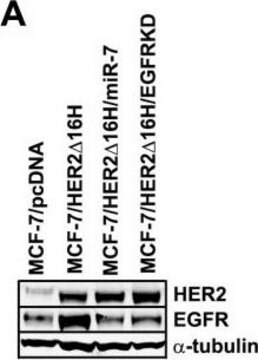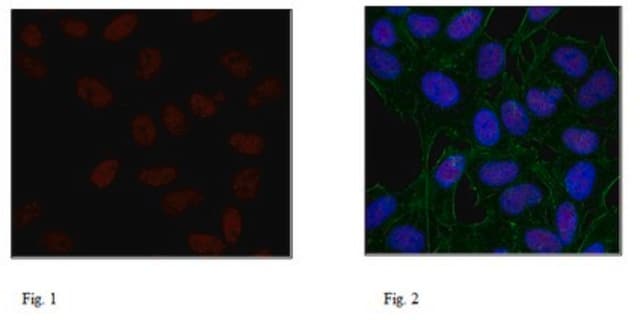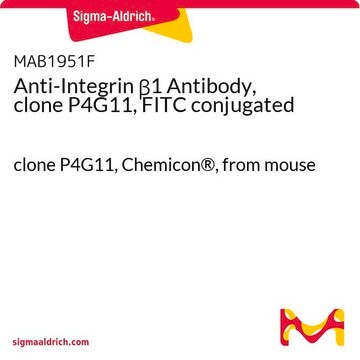05-1341
Anti-Histone H3 Antibody, (Unmodified Lys4), clone CMA301
clone CMA301, from mouse, purified by affinity chromatography
Synonym(s):
H3 histone family, member T, histone 3, H3, histone cluster 3, H3
About This Item
Recommended Products
biological source
mouse
Quality Level
antibody form
affinity purified immunoglobulin
clone
CMA301, monoclonal
purified by
affinity chromatography
species reactivity
vertebrates, human
technique(s)
ELISA: suitable
dot blot: suitable
flow cytometry: suitable
immunocytochemistry: suitable
immunoprecipitation (IP): suitable
western blot: suitable
isotype
IgG2bκ
NCBI accession no.
UniProt accession no.
shipped in
wet ice
target post-translational modification
unmodified
General description
Specificity
Immunogen
Application
This antibody has been shown by an outside laboratory to be suitable for ELISA.1
Immunocytochemistry:
This antibody has been shown by an outside laboratory to be suitable for immunocytochemistry.1
Immunoprecipitation:
This antibody has been shown by an outside laboratory to be suitable for immunoprecipitation.1
Epigenetics & Nuclear Function
Histones
Quality
Western Blot Analysis: 1:10,000 dilution of this antibody detected histone H3 in 10 μg of HeLa Acid Extract cell lysate and recombinant histone H3 (500 ng) but not other recombinant histones.
Target description
Physical form
Storage and Stability
For maximum recovery of product, centrifuge the vial prior to removing the cap. Avoid repeated freeze/thaw cycles, which may damage IgG and affect product performance.
Analysis Note
HeLa Acid extract lysate.
Other Notes
Disclaimer
Storage Class Code
12 - Non Combustible Liquids
WGK
WGK 2
Flash Point(F)
Not applicable
Flash Point(C)
Not applicable
Certificates of Analysis (COA)
Search for Certificates of Analysis (COA) by entering the products Lot/Batch Number. Lot and Batch Numbers can be found on a product’s label following the words ‘Lot’ or ‘Batch’.
Already Own This Product?
Find documentation for the products that you have recently purchased in the Document Library.
Our team of scientists has experience in all areas of research including Life Science, Material Science, Chemical Synthesis, Chromatography, Analytical and many others.
Contact Technical Service








